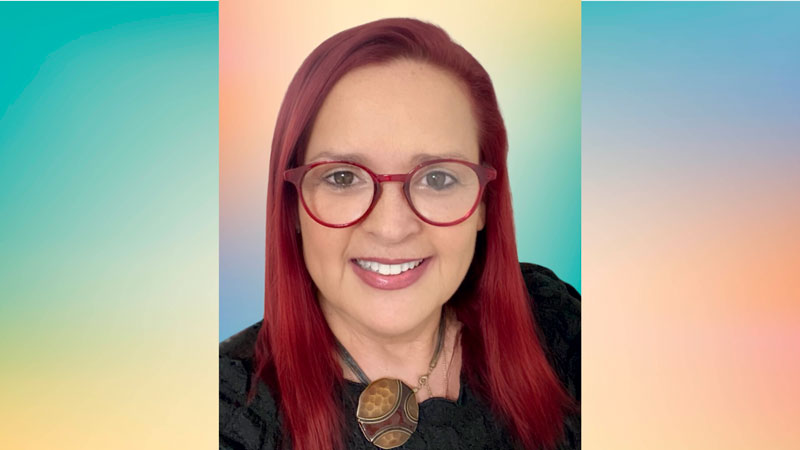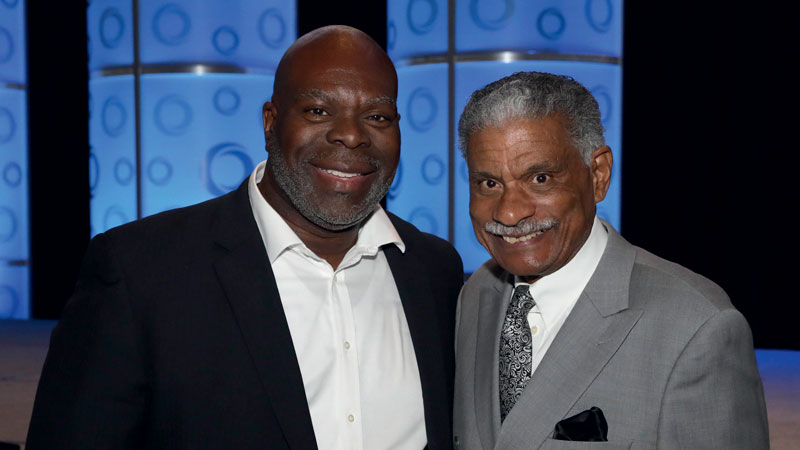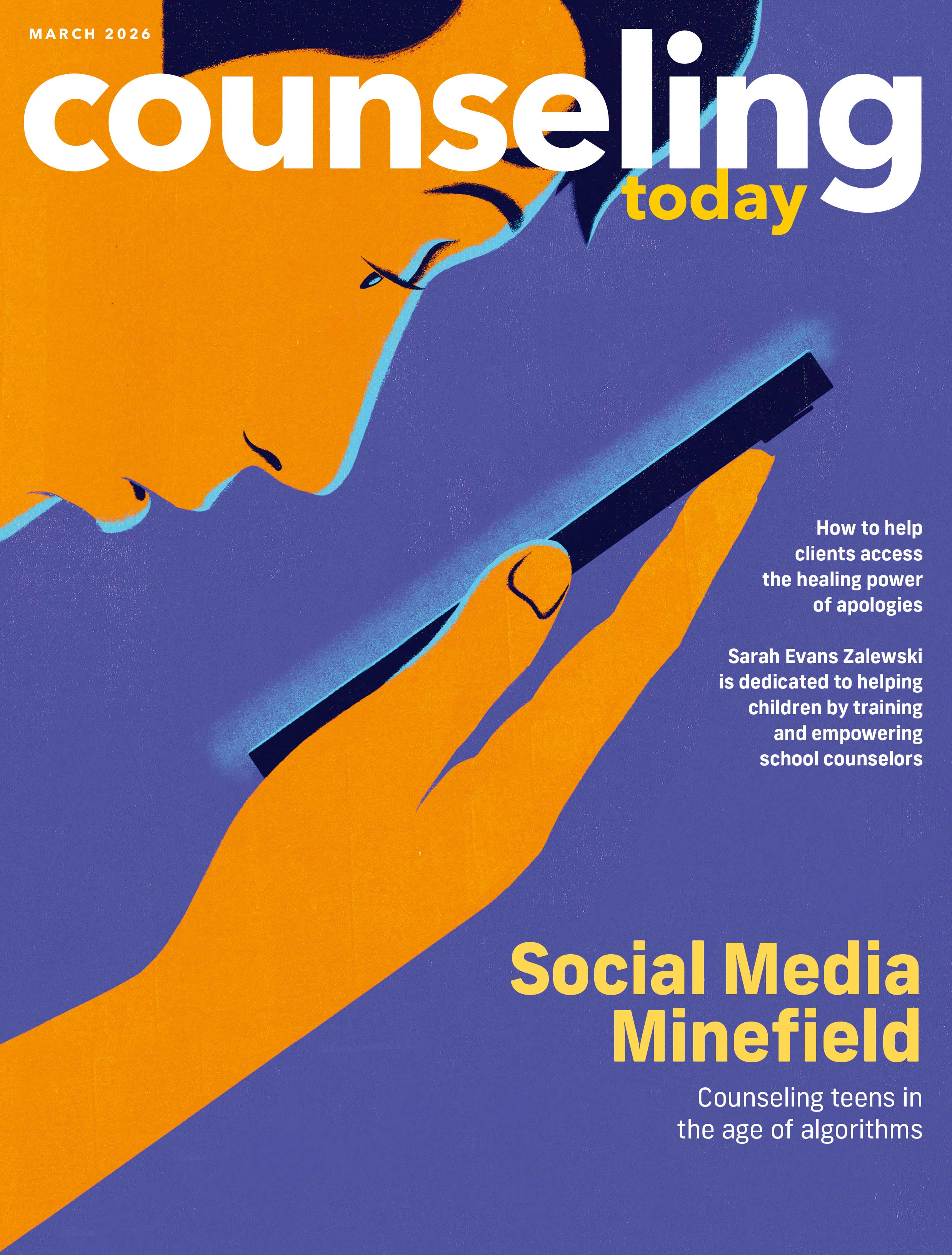Explore Counseling Today Articles
-
 The New Classroom
The New ClassroomInnovations in education can help attract and train a new generation of counselors.
-
 How I Found Purpose after Burnout
How I Found Purpose after BurnoutAfter tucking in my young kids for the night, I collapsed into bed. My husband was away on his second overnight shift in two days. I lay there alone, thinking of work the next day, and felt a drop in my stomach.
Tags: -
 Welcoming Borders
Welcoming BordersCounseling Today Nov 2024 Feature Article - Learning what refugee children and teens go through can improve your reach in counseling.
Tags: -
 Global Impact
Global ImpactIn April of this year, Gregory Kimble, DMin, LPC-S, went on a mission trip to Highgate, a rural town in Jamaica. Kimble traveled as part of an annual medical mission trip to Jamaica organized by Women at Real Risk and Hands For A Cause.
-
 Successfully Terminating a Play Therapy Session
Successfully Terminating a Play Therapy SessionDemi Pino, a recent graduate with a master’s in clinical rehabilitation counseling from Georgia State University and an associate counselor at Threshold Community Program, asks Robert Jason Grant, EdD, LPC, RPT-S, about termination in play therapy.
-
 From Dream to Reality
From Dream to RealityLourdes Araujo’s path into counseling was a long, hard-fought one, but she’s been helping people her entire life
-
 Paving the Way for Black Male Leadership
Paving the Way for Black Male LeadershipEven before Courtland C. Lee, PhD, and S. Kent Butler, PhD, LPC, embarked on a career in counseling, they were both dedicated to giving back to the Black community and lending a hand to uplift Black men.
Tags: -
 Addressing the Mental Health of Children and Youth
Addressing the Mental Health of Children and YouthThe ACA president elaborates on her presidential initiative to improve the mental health of children and youth.
-
 Helping a School Community Heal after Suicide
Helping a School Community Heal after SuicideAs youth suicide rates continue to increase, more school counselors need to be prepared for suicide postvention.
-
 Growing a Rewarding Career
Growing a Rewarding CareerCounselors share how they have built fulfilling careers despite challenges.
Search CT Articles
Filter CT Articles
Current Issue
Sign Up for Updates
Keep up to date on the latest in counseling practice. Sign up to receive email updates from Counseling Today.


